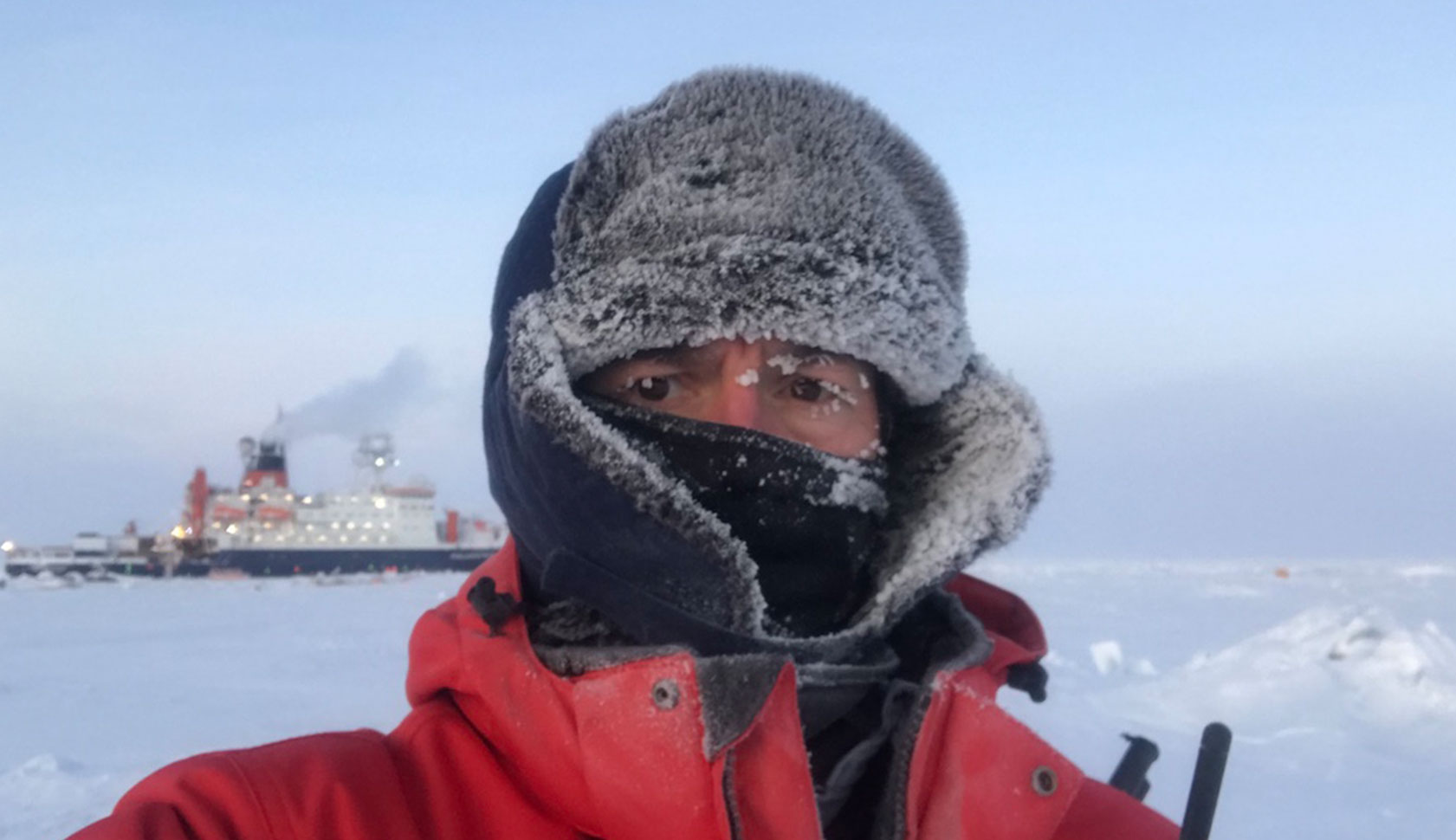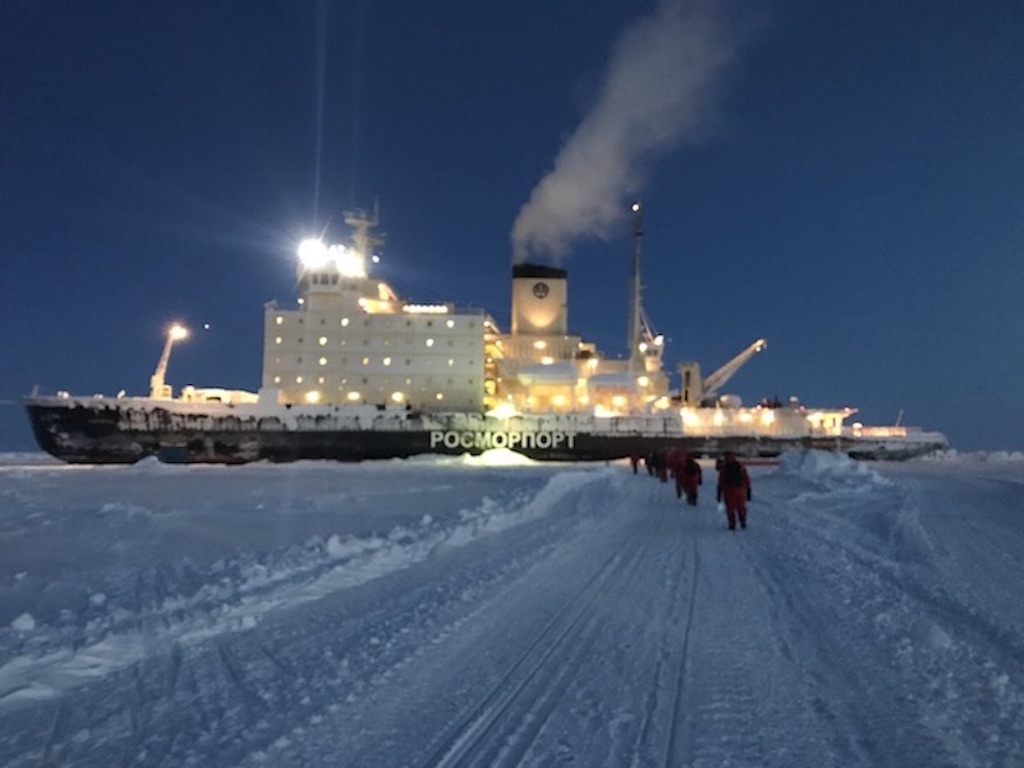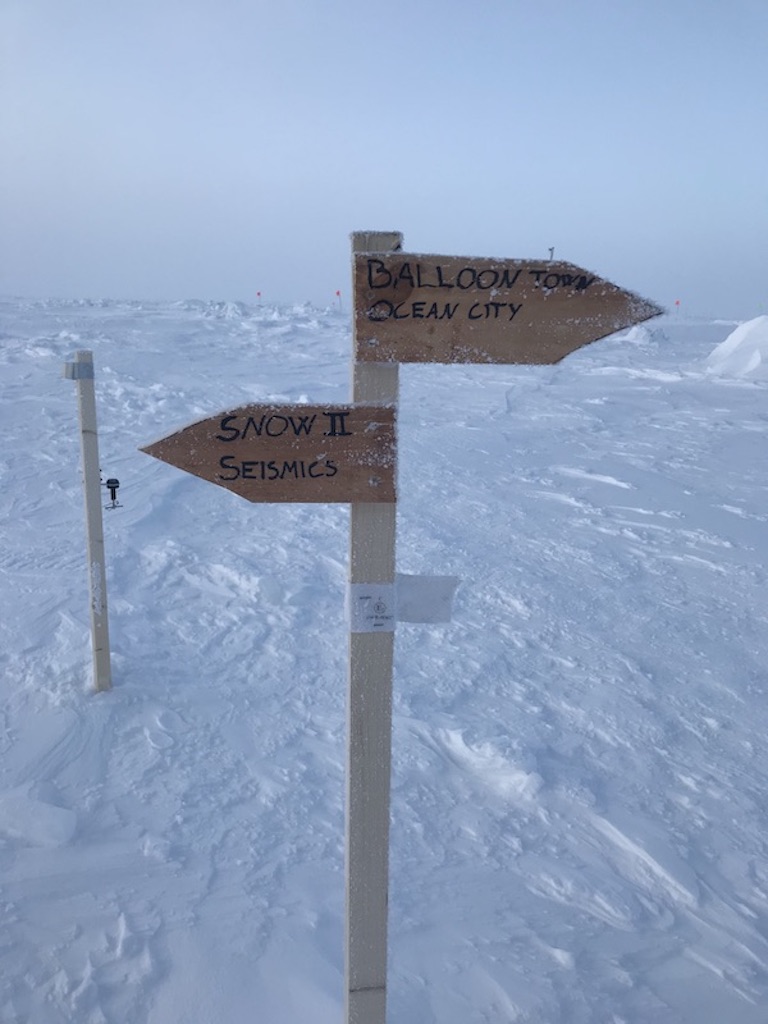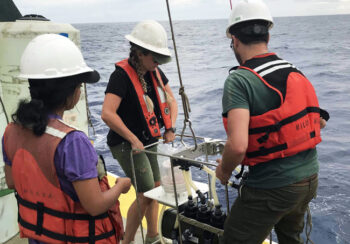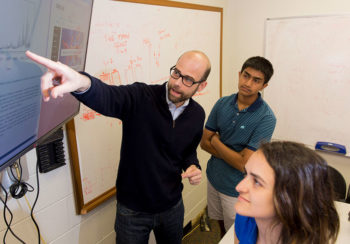The coronavirus pandemic has become a global crisis with impact reaching all corners of the world, including the Arctic. One UGA researcher is experiencing these impacts firsthand.
Chris Marsay joined the Leg 3 team onboard the German ice-breaker research vessel Polarstern in the Arctic ice cap in March as part of the Multidisciplinary drifting Observatory for the Study of Arctic Climate or “MOSAiC.” The goal of MOSAiC is to develop a better understanding of climate change, which is affecting the Arctic at a much quicker pace than anywhere else in the world.
Enduring temperatures of minus 40 degrees Fahrenheit and wind chills of minus 75 degrees, Marsay’s primary role has been to monitor the atmospheric deposition of aerosols to the ocean and sea ice in hopes of understanding how nutrients and pollutants in this material make their way from the upper atmosphere to the ice cap.
“My working hours on board are split between collecting and processing samples of snow, ice cores and seawater,” said Marsay, a scientist with UGA Skidaway Institute of Oceanography. When Marsay is not collecting samples, his role shifts to a more daring job unique to his surroundings: polar bear watch.
“My job is to look out for polar bears on the ice, although there have been no polar bear sightings yet during Leg 3,” Marsay said.
He and his colleagues have been able to continue their research up until now, but the global spread of coronavirus has caused unexpected delays for the team.
“We have followed the unsettling news arriving from shore as the coronavirus pandemic has developed, and the resulting disruption has extended to the MOSAiC project,” Marsay said. “Widespread travel restrictions have delayed the changeover of personnel between Legs 3 and 4, which was due to take place in early April, and those of us currently on board are now unlikely to return to land before the end of May.”
As with the rest of the world, the researchers on board Polarstern are dealing with feelings of uncertainty, unsure of when they will get the chance to reunite with family and loved ones.
“We realize that we are fortunate to be isolated from the restrictions on public life back home and are able to continue with our daily routines,” Marsay said. “But at the same time, it is hard for those on board to be separated from their loved ones for longer than expected and during a difficult time.”



